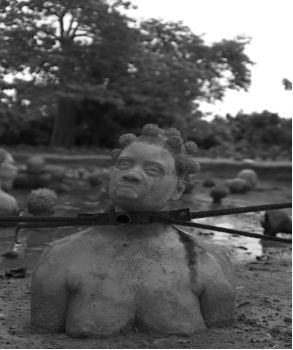
|
Getting your Trinity Audio player ready...
|
It’s International Day for the Remembrance of the Slave Trade and its Abolition, a day meant to recall one of the greatest crimes against humanity, yet remembrance has become predictable, filled with numbers and familiar names, stripped of the voices that should haunt us most: the women.
The transatlantic slave trade was not only about ships and chains; it was also about wombs turned into economic tools, women forced to reproduce children who were born into captivity, women whose bodies carried both labour and violence. Their resistance was not always recorded in official accounts, but it was present, through abortions that rejected producing more property, through food hidden in braids, through languages whispered into children’s ears when colonial masters demanded silence.
Haiti is celebrated as the symbol of abolition, the revolution that changed everything, yet even here, women are missing. We know Toussaint Louverture, but who remembers Cécile Fatiman, the priestess whose ceremony fuelled the uprising, or Sanité Bélair, who chose to die facing her executioners? When women are remembered at all, they are flattened into myth, their political strategies ignored, their humanity erased. If this is remembrance, what exactly are we remembering when it’s incomplete?
Nigeria cannot pretend this history is far away. The same ports that once shipped bodies across the Atlantic are today routes for trafficking Nigerian girls to Europe, sold into sexual exploitation under promises of work, silenced by shame, treated as commodities in a global trade that has only changed shape. What does it mean if we mourn enslaved women of the past yet fail to see the chains still on young Nigerian women today?
When abolition is celebrated, it is often treated as the end of a chapter, but for women, it was never an end; it was survival in conditions that still denied them land, education, or voice. Freedom for women meant struggling against poverty, against men who claimed their labour as husbands or employers, against systems that saw their lives as expendable. Is it not the same struggle Nigerian women face now, forced into marriages as children, punished for demanding bodily autonomy, dismissed in politics even when they carry movements on their backs?
Memory is political, and selective memory is violence. To recall the slave trade without centring women is to repeat the same silence that slavery enforced. To mark 23 August with only ships and statistics is to deny that women’s endurance and resistance were the foundation of survival.
If remembrance is meant to teach, then what are we teaching when women are absent? That their suffering was secondary, that their strategies were irrelevant, that their freedom mattered less? Whose story is history serving when half of it is left untold?
Women were not bystanders to slavery; they were central to both its brutality and its abolition. Remembering them is not a favour or a footnote; it is the truth. And until truth is told in full, remembrance will remain incomplete, a hollow ritual that honours men while silencing women yet again.






